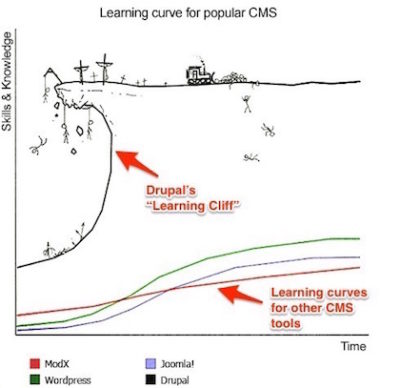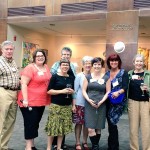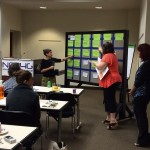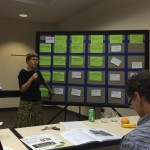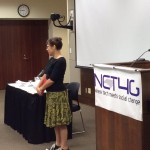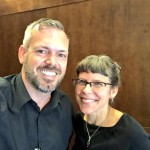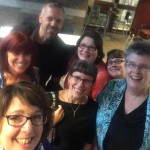As I mentioned in my last blog post, HASTAC is hosting and facilitating the first-ever NCTech4Good Unconference on April 16th. I’ve found that there is a lot of (understandable) confusion about what an “unconference” (or “Barcamp”) is, especially among those who have not experienced them – but sometimes even with those who have.
The history of this idea is less important than how it’s done, but it’s quite interesting and worth mentioning here. This idea was first conceived in the 1980’s as Open Space Technology – a way for participants to organize and conduct their own conferences. The first BarCamp (essentially an unconference for geeks) was held in 2005 in response to the elite FOOCamp that was hosted by tech media mogul Tim O’Reilly. I believe BarCamps were also inspired by the BloggerCons of the early 2000’s which aimed to bring a blog-like dialog into real-life meetings. So that’s enough history, see this Wikipedia entry for lots more fascinating background: http://en.wikipedia.org/wiki/Open_Space_Technology .
There are a few specific things that I think are key to a successful unconference:
- There is no agenda before the meeting, but there is a schedule. Some unconferences do kick off with a speaker or panel to spark discussion. It is important to begin the day with someone who can clearly explain the process and lay out the goal of the gathering.
- Broad participation is key. After kicking things off, anyone who would like to hold a session stands in front of the room and gives a very short “pitch” for their topic. These can be as formal as presentations or as informal as a conversation. The proposer does not need to be an expert on the subject, but has to be willing to facilitate the conversation if no-one else wants to. It’s not uncommon for half the people in the room to offer some kind of session.
- All of these session ideas are written on cards and posted on The Grid. This is a chart showing your available meeting spaces on one axis and time slots on the other. After all the pitches are posted (or while they are being made) the participants should be prompted to show a general sense of interest (applause, dots, whatever) to help indicate which sessions need bigger or smaller rooms. Then everyone who cares to can have at The Grid – moving and combining (or separating) sessions until everyone’s varying needs are met.
- In the sessions, The Law of Two Feet is in effect. That is “If at any time you find yourself in any situation where you are neither learning nor contributing: use your two feet and go someplace else.”
- Another principle is to strongly encourage public documentation of the event. This can be done via blogs, wikis, Twitter, Flickr, etc. This varies depending on the group, but it’s very common that an unconference will have already posted a wiki to collect ideas before the event, so this is a great place to post notes from the sessions.
- Oh, make sure to provide lots of food and coffee, and have fun!
Registration for the NCTech4Good Conference and Unconference has been held open until Friday April 8, please go sign up now at http://nctech4good.org .
If you haven’t heard enough about unconferences, I strongly recommend the blog of facilitator Kaliya Hamlin. Start here: http://www.unconference.net/unconferencing-how-to-prepare-to-attend-an-unconference/ .
I also recently discovered a wonderful article about teachers using unconferences: http://plpnetwork.com/2011/03/07/unconference-revolutionary-professional-learning/ .
(Also posted at hastac.org and nctech4good.org.)
